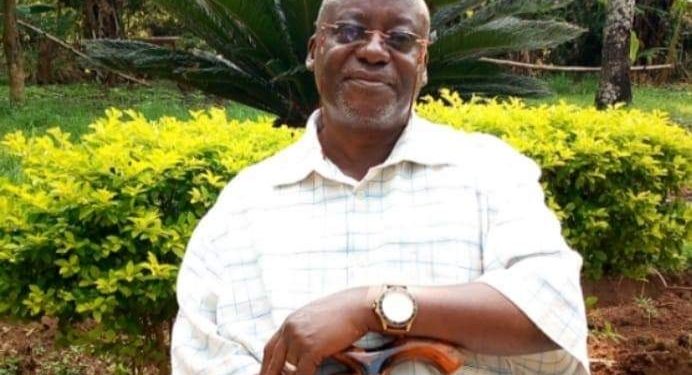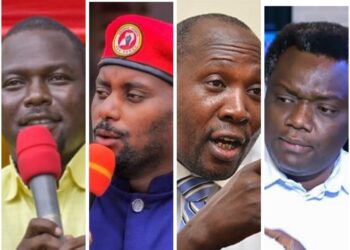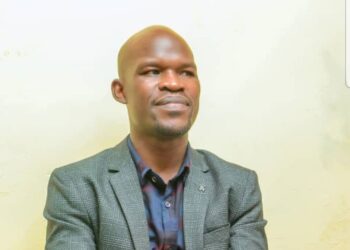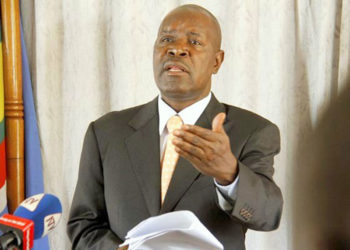Tanzania, Kenya, Uganda, Rwanda, Burundi, Democratic Republic of Congo and South Sudan are members of the East African Community (EAC). Initially, when it replaced the colonially formed East African Common Services Organisation (EACSO) in 1967 only Tanzania, Kenya and Uganda belonged to it., When it collapsed in 1977 it was largely due to political discord between the top leaders of the three countries (Jomo Kenyatta of Kenya, Julius Nyerere of Tanzania and Idi Amin of Uganda), but also due to economic and political sabotage of its institutions – especially the East African Railways Corporation, East African Airways Corporation and East African Harbors Corporation – by top politicians in Kenya.
The Kenyan politicians, for example, bought trailers or haulers to transport goods to and from Mombasa, thereby competing with the trains of the East African Railways. That was the beginning of the collapse of the East African Railways Corporation and the emergence of Kenya Railways, Tanzania Railways and Uganda Railways following the collapse of the Community.
A story has traversed decades that one day former powerful Kenyan politician in the Jomo Kenyatta and arap Moi governments, who died recently at the age of 101, Charles Njonjo, one day entered an East African Community DC 10 aircraft – the best those days – he noticed that the Pilot was and African. I don’t know if it was Uganda’s Francis Babu. He got so annoyed that he disembarked from it. He preferred a white pilot. The story of East African Airways was never the same from that time on. Kenya started to deny the airline money. By the time it collapsed, it was a miniature of its past. Out of its space emerged Kenya Airways, which came dominate East African routes during the reign of arap Moi, Tanzania Airways and Uganda Airways.
When the East African Community was revived on 7th July 2000, its corporations were not revived. Even the one I worked in as a Senior Fisheries Research Officer, the East African Marine Fisheries Research Organisation (EAMFRO) with Headquarters in Zanzibar, and the East African Fresh Water Fisheries Research Organisation (EAFFRO) were not revived. The most active aspect of it is the East African Legislative Council, where East African politicians draw emoluments and allowances and the countries’ leaders dump some of their supporters.
It is not only East African Community grouping former colonial enclaves South of the Sahara together, mainly to advance economic cooperation rather than political integration
There are Upper Riparian countries in the African Great Lakes region include: Burundi, the Democratic Republic of the Congo, Ethiopia, Kenya, Malawi, Mozambique, Rwanda, Zambia, Tanzania, and Uganda. Sudan, Ethiopia, Eritrea and Egypt are called the Lower Riparian countries. Amongst these, Burundi, Rwanda and Tanzania formed Kagera Basin Organisation (KRB) and Uganda acceded to it in 1981. They wanted to manage poverty and environmental degradation and improve the quality of life of their people together.
The true Great Lakes region consists of three countries are Rwanda, Burundi and the Democratic Republic of Congo DRC) – which together constitute a common geographical area composed of communities interconnected by language, culture, trade and family ties.
Tanzania, Kenya and Uganda is apparently also included in the Great Lakes Region. The Great Lakes region has been home of conflicts, and promises to be so well in the future.
Burundi and Rwanda are at times also considered to be part of Central Africa, which the United Nations defines as a region consisting of Cameroon, Central African Republic, Chad, Congo Republic – Brazzaville, Democratic Republic of Congo, Equatorial Guinea, Gabon, São Tomé & Principe. They belong to the Economic Community of Central African States (ECCAS). ECCAS is committed to mobilize all its resources and energy to make Central Africa a region of peace, prosperity and solidarity based on a unified economic and political space where each citizen moves freely in order to ‘thus ensures sustainable and balanced development.
Djibouti, Eritrea, Ethiopia, and Somalia are collectively known as the Horn of Africa. The area is the easternmost projection of the African continent. They belong to the Intergovernmental Authority on Development (IGAD) in Eastern Africa, which also includes Uganda.
Sixteen countries -Angola, Botswana, Comoros, Democratic Republic of Congo, Eswatini, Lesotho, Madagascar, Malawi, Mauritius, Mozambique, Namibia, Seychelles, South Africa, United Republic Tanzania, Zambia and Zimbabwe – belong to a regional economic community called Southern African Development Community (SADC). SADC is the strategic framework for delivering on Africa’s goal for inclusive and sustainable development and is a concrete manifestation of the pan-African drive.
Burundi, Democratic Republic of Congo, Egypt, Eritrea, Ethiopia, South Sudan, Sudan, Tanzania and Uganda – also belong to a politically designed socioeconomically-oriented bureaucratic Organisation called Nile Basin Initiative ostensibly formed to manage the waters of the Nile effectively for the benefit of the member countries (not necessarily the peoples) of the region.
All the countries, whatever grouping they belong to, were formally colonial enclaves, which were said to have gained “political” independence from their former colonial masters, with the colonial administrators replaced by black ones, initially at the topmost level before Africanization took root. However, they remained economically dependent and politically controlled by their former colonial rulers directly or through bilateral or multilateral arrangements. Despite the entrapment, they have tried to come together for the common good of socioeconomic, sociopolitical and sociocultural liberation and self-reliance, which has proved very difficult because the former colonial master use the backdoor to infiltrate the countries and regions for their continued exploitation and control over resources.
The greed and selfishness of the rulers has made it easy for the former colonial masters and the new arrivals, especially China, to frustrate the countries. Besides, the regional organizations they form increasingly depend on loans (wrongly called foreign aid) for their structure and function. Sometimes the leaders of the countries are recruited into the spy networks of the former colonial masters, US or Russia to spy on their colleagues. Consequently, the leaders do not trust each other. This is confounded b the intransigence of some of them or the fact that some of them support rebel activities in some the other countries or rob the resources of the others.
Nevertheless, talk of economic cooperation and political integration predominates in some of the groupings. Some of the leaders, especially the most long-ruling leaders in the Africa South of the Sahara, President Tibuhaburwa Museveni, seem to be more attracted to the ideas of economic cooperation and political integration. However, suspicions and mistrust among the leaders act as barriers to these ideals in the short- medium- and long-term. Therefore, the current leaders, like those before them. May leave power without getting anywhere near achieving economic and political integration.
If you asked whether I thought, believed or was convinced economic and political integration was possible at the moment, especially in East Africa where it has been sung by leaders more than in the other regions, I would hesitate to say yes. Let me articulate and clarify why I am not so confident that East Africa will experience economic and political integration in our lifetime.
I have already mentioned the intransigence, greed and selfishness of some of our political leaders, who do not respect the sovereignty of their neighboring countries. For example, Rwanda and Uganda invaded Zaire (now DRC) in 1998, according to the leaders to overthrow President Desire Kabila ostensibly because he was harboring rebels who were destabilizing their countries. There armies have been in DRC since then and now Uganda is famed to have 4000 troops in mineral-rich Eastern DRC. Both Rwanda and Uganda were accused by DRC of robbing its resources, massacring its citizens, raping women and committing crime against humanity. Uganda was, this year, heavily fined by the International Court of Justice (ICJ) for the excesses of its soldiers in the DRC and government started recently to pay the fines.
Although Rwanda was also accused by DRC of more or less the same crimes it was acquitted by the ICJ. However, DRC has continued to accuse Rwanda of supporting the rebellion of refugees (the Banyamulenge, so called because they have since they sought refugee in DRC occupied a place called Mulenge) against the government of that country, and even contributing soldiers to the ranks of the rebels. According to reports from DRC, Rwandese soldiers, Banyamulenge rebels and Uganda soldiers are involved in robbing Congolese resources, raping women, killing people and committing gross human rights. It is unlikely that Congolese would trust an East African Community in which Rwanda and Uganda are members. At least not now.
There is widespread belief in East African and Great Lakes regions that the small ethnicity of Tutsis which rules Rwanda and Uganda wants to establish its hegemony over the whole area. One school of thought is that most East Africans are not amused by the current moves, especially by President Tibuhaburwa Museveni to admit Somalia and Ethiopia to the East African Community. The school also holds that admitting Somalia and Ethiopia to the East African Community would mean the community predominantly composed of countries ruled by people from the nomadic pastoralist energy system.
Those countries would be Kenya, Rwanda, Uganda, Somalia, Ethiopia and South Sudan.
Therefore, fear of domination is growing among the traditionally settled people of East Africa that economic and political integration does not make much sense if it is going to benefit a small ethnic group of cattle keepers. Rwanda and Uganda are today cited as countries where the absolute majority are dominated militarily, economically, socially, culturally and environmentally by people of the nomadic pastoralist energy system. In Uganda, citizens are lamenting that most of the land grabbing displacing human populations from their ancestral lands, disrupting cultures and livelihoods of communities and converting once securely settled people into modern-day nomads and slaves, belong to the nomadic pastoralist energy system.
Like before, the once well-organized federal entities that resisted the economic and political integration pursued by the British colonialists, and now constitutionally reduced to cultural institutions, will resist an integrated East African Community even if militarily pursued.
The most important constraint to integration will, however, be the education systems in the region, which continue to value academic tribes (disciplines) and the academic hegemony of those belonging to the academic tribes. The products of the education system are a result of knowledge disintegration. They are educated to preserve and perpetuate disintegration of anything conceivable.
They possess disintegrated minds and are, therefore, unable to see things holistically. They cannot act as agents of integration at any level of society. They are likely to talk more about integration than be agents of integration.
To integrate anything, you need to have a critical mass of actors with integrated minds – those who do not see the world in bits. Therefore, unless we have schools and universities that are capable of producing people with integrated minds, we cannot hope to see an integrated East African Community in our life lime. So the challenge our present day schools and universities is “when to begin graduates with integrated minds in a century fast and complex changes. We cannot continue superimposing simplicity over complexity. Simplicity and seeking simplicity accompanied by overspecialization in education and research belonged to the 20th Century.
Complexity and understanding complexity and emphasizing liberalization and emancipation in education belongs to the 21st Century and beyond. When we integrate, we seek reconnection and complexity. We must have complexity-loving teachers to produce for us graduates who hate simplicity and love complexity, which is the goal of integration.
If we have been destroying our cultures, our indigenous groups, our institutions, our nationality and our sovereignty and oversimplifying our society in the hope that we shall soon have an integrated East African Community, we need to rethink. Simplicity does not serve integration. It serves disintegration.
We must rethink our education so that we begin to produce people who can be agents of integration rather than disintegration.
The dismembering of Uganda into small meaningless groups is a process of simplification. It shows that our leaders, who were exposed to disintegrating education, have been successfully applying simplification. If elsewhere in East Africa it is the same story of simplification, then we are far from having an integrated region. It means we have been concentrating on disintegrating the region, undermining integration. You cannot move towards integration through disintegration.
If we are to integrate East Africa, we must use Uganda as an example by reconnecting and reintegrating the nation states that formed Uganda on 9th October 1962, which are today bantustanised into more than 139 districts. The nation states were: Acholi, Ankole, Buganda, Bugisu, Bukedi, Bunyoro, Busoga, Karamoja, Kigezi, Lango, Moyo, Sebei, Teso, Toro and West Nile. If we integrate Uganda back to what it was, we can integrate East Africa to what we want it to be. We cannot carry Uganda into an Integrated East Africa when it is totted with small, meaningless entities.
Integration in Europe, USA and Canada is proceeding well because their education planners and managers have de-emphasized academic tribes and academic hegemony. They are producing agents of integration with integrated minds.
You cannot unite East Africa, let alone Africa, without an integrating, emancipating education producing integrated, integrating minds. Rethink education first.
In God and My Country
Do you have a story in your community or an opinion to share with us: Email us at editorial@watchdoguganda.com













